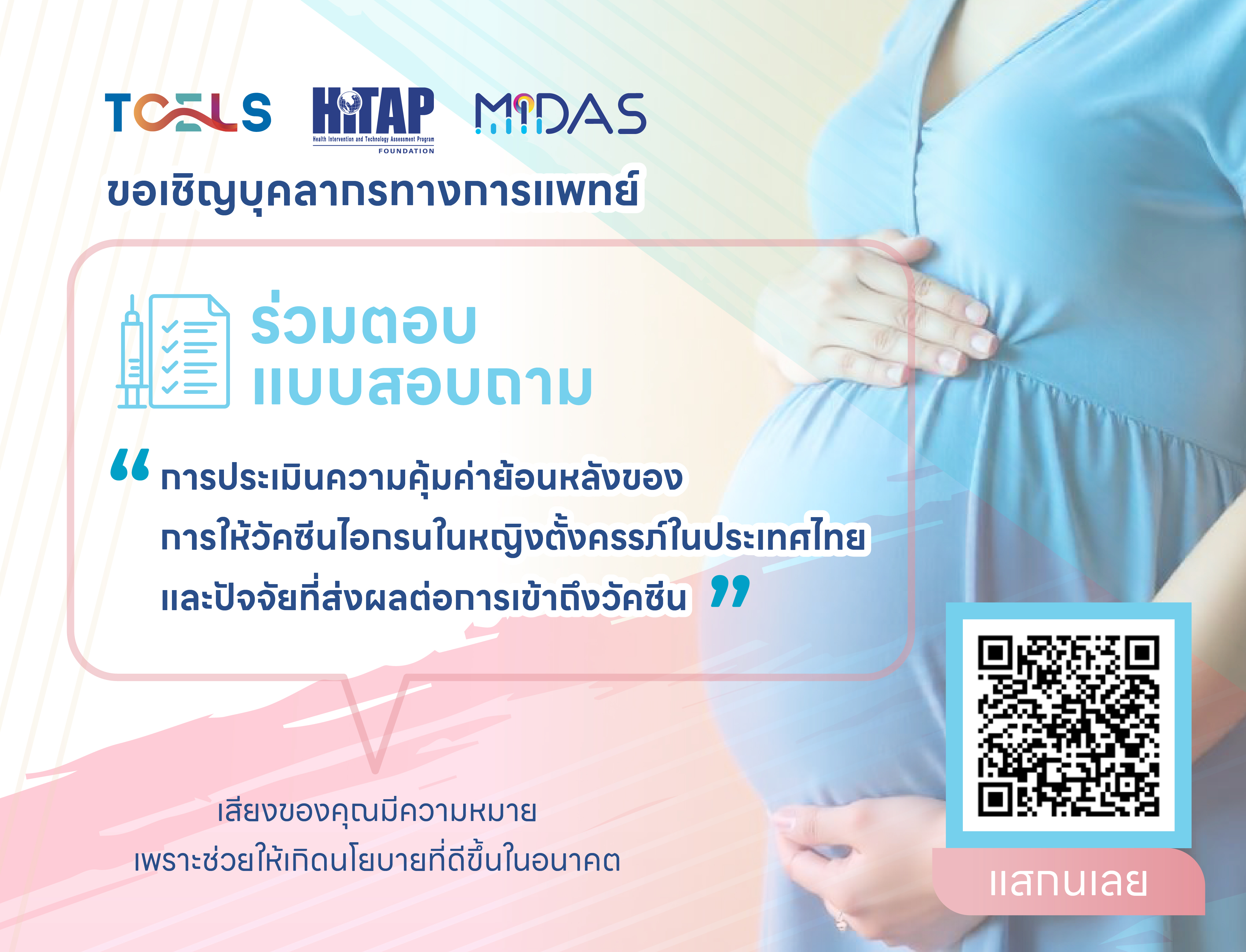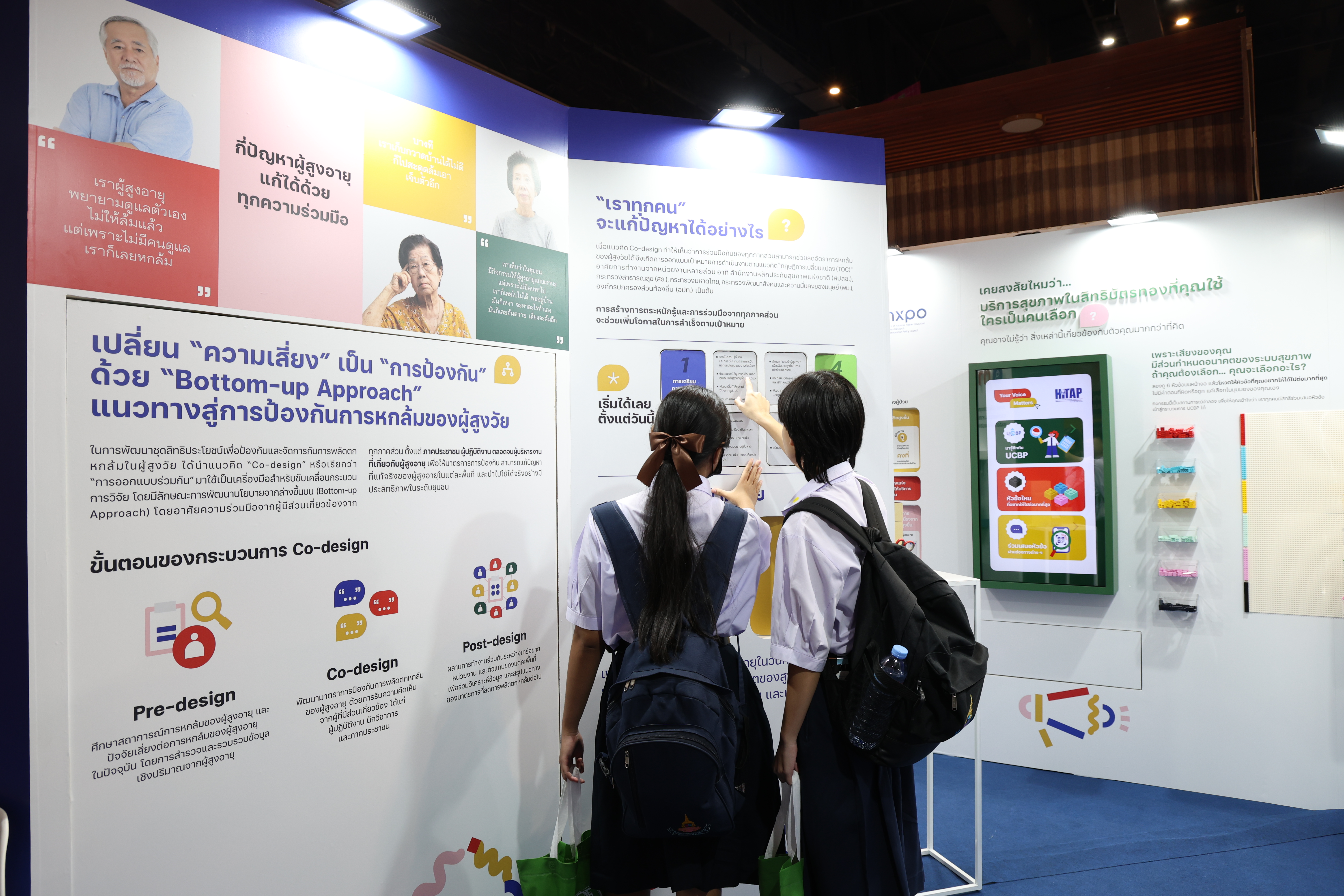ขอเชิญบุคลากรทางการแพทย์ร่วมตอบแบบสอบถาม “การประเมินความคุ้มค่าย้อนหลังของการให้วัคซีนไอกรนในหญิงตั้งครรภ์ในประเทศไทย และปัจจัยที่ส่งผลต่อการเข้าถึงวัคซีน”



In recent decades, there have been few new treatments for people with stubbornly high blood pressure. Exercise and a low-sodium diet, along with such stalwart drugs as diuretics, ACE inhibitors and beta-blockers, have made up the standard regimens.
But these efforts fail in a surprising number of patients. On three or more medications, many still suffer from uncontrolled hypertension and with it a heightened risk of heart attack and stroke.
Now, doctors are experimenting with an innovative but drastic new approach that may help lessen the danger in patients for whom nothing else works. During the procedure, called renal denervation, a physician threads a catheter into the arteries leading to the kidney, then delivers pulses of radio-frequency energy that interrupt the signaling in nerves to and from that organ. The damage to the nerves is probably permanent, although no one is certain.
Small clinical trials, conducted mainly outside the United States, have suggested that in combination with drugs, renal denervation may help to reduce high blood pressure in patients with so-called treatment-resistant disease. The treatment is already available in Australia and Europe.
The largest randomized controlled trial to date is now under way in the United States. It is sponsored by Medtronic, which hopes to win Food and Drug Administration approval for a specialized catheter and generator used in the procedure.
“I think this has the potential to change the way hypertension is managed in this country and around the world,” said Dr. Gordon Tomaselli, a cardiologist at Johns Hopkins and president of the American Heart Association, who is not involved in the trial.
“This is potentially the most exciting advance in hypertension in literally decades,” said Charanjit Rihal, chairman of the division of cardiovascular diseases at the Mayo Clinic in Rochester, Minn. Still, he added, there are a number of uncertainties.
Even if renal denervation does prove effective in a large trial, it appears not to substitute entirely for drugs. “A lot of people have viewed this superficially as a cure for hypertension, and it is not,” said Dr. George Bakris, director of the hypertension center at the University of Chicago medical center and a principal investigator in the new trial.
But it may allow some people to take fewer medications or smaller doses, he added.
The kidney plays a crucial role in blood pressure regulation. It controls the excretion of salt and water from the body, which affects blood volume and blood pressure. The organ also communicates with the brain, which helps regulate blood pressure by narrowing blood vessels or increasing the pumping action of the heart.
The numerous drugs used to treat hypertension interrupt these feedback loops in various ways: They relax blood vessels, for example, or reduce blood volume. But of the roughly 70 million Americans with hypertension, more than half are not adequately treated, meaning their blood pressure remains above normal. Ten percent to 20 percent are unable to control their hypertension even with multiple drugs, said Dr. Tomaselli.
In addition, blood pressure medications can sometimes cause side effects, like swollen ankles, sleepiness and depression. New treatments are desperately needed, he said.
Decades ago, research in animals showed that destroying nerves to the kidney, either surgically or with chemicals, sometimes prevented or reversed hypertension. But researchers didn’t know whether this insight could be translated into humans, or how.
In 2007, a team from the California-based company Ardian performed the first renal denervation in an Australian patient with treatment-resistant high blood pressure. In 2010, a randomized clinical trial financed by the company and published in The Lancet tracked the effects of renal denervation on roughly 50 patients with treatment-resistant hypertension in Australia, New Zealand and Europe.
After six months, the average blood pressure reduction was 32/12 millimeters of mercury among the patients who received renal denervation, meaning a 32-point decrease in systolic and a 12-point decrease in diastolic pressure. Among the control group, there was essentially no reduction, on average, in either systolic or diastolic blood pressure.
The mechanism underlying this treatment strategy is not fully understood. Nerve signals from the brain to the kidney tend to increase blood pressure, in part by stimulating production of the enzyme renin, which initiates a cascade of hormones that directly and indirectly lead to narrowing of arteries and decreases in excretion of salt and water. When the kidney can’t “hear” the brain, blood pressure seems to fall. So far, the disruption of signaling to the kidney seems not to cause other problems.
To date, the main complications of the procedure have apparently resulted from the catheterization itself. For instance, a small number of patients have experienced bleeding in the groin or damage to the femoral artery where the catheter is inserted.
But the long-term effects have not been fully evaluated, Dr. Tomaselli said.
One theoretical risk is that patients who have lost normal signaling to the kidney may have difficulty maintaining adequate circulation in response to a rapid loss of blood volume — for instance, from a gastrointestinal bleed, a trauma like a gunshot wound, or even extreme exercise in the heat, said Dr. Suzanne Oparil, a cardiologist at the University of Alabama at Birmingham and a consultant to Medtronic.
The new randomized study is enrolling more than 500 patients with treatment-resistant hypertension and will include a sham procedure for patients in the control group. Researchers will measure ambulatory blood pressure, meaning blood pressure throughout the day, in addition to the office-based measure. This is important because the effect on ambulatory blood pressure appears to be less dramatic, according to Dr. Oparil.
The results are expected in 2013. If they prove promising, “I would expect studies will be designed to test whether people with garden-variety hypertension would benefit,” Dr. Tomaselli said, rather than only patients with treatment-resistant disease.